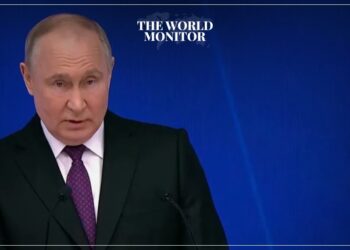The U.S. commitment to deterring North Korea is supported by the full range of U.S. capabilities, including nuclear assets, President Joe Biden assured South Korean President Yoon Suk Yeol during their meeting at the NATO summit on Thursday.
The leaders authorized a guideline for establishing an integrated extended deterrence system on the Korean Peninsula to counter North Korea’s nuclear and military threats. This guideline formalizes the deployment of U.S. nuclear assets on and around the Korean Peninsula, aimed at deterring and responding to potential nuclear attacks from the North, according to Yoon’s deputy national security adviser, Kim Tae-hyo.
“It means U.S. nuclear weapons are specifically being assigned to missions on the Korean Peninsula,” Kim stated. Biden and Yoon also issued a joint statement announcing the signing of the Guidelines for Nuclear Deterrence and Nuclear Operations on the Korean Peninsula.
“The Presidents reaffirmed their commitments in the U.S.-ROK Washington Declaration and highlighted that any nuclear attack by the DPRK against the ROK will be met with a swift, overwhelming, and decisive response,” the statement read.
Cheong Seong-Chang, a security strategy expert at the Sejong Institute, emphasized that the new nuclear guideline fundamentally changes how the allies will respond to a nuclear threat from North Korea. However, he noted the inherent limitation of nuclear deterrence, expressing concerns about whether the guideline will endure changes in the U.S. administration.
North Korea has openly advanced its nuclear weapons policy, codifying their use in perceived threats against its territory and enshrining nuclear advancement in its constitution. Earlier this year, North Korea designated South Korea as its “primary foe” and vowed to annihilate its neighbor for colluding with the U.S.
Both Seoul and Washington deny aggressive intent against Pyongyang but remain fully prepared to counter any aggression, stepping up joint military drills in recent months. Yoon reaffirmed South Korea’s support for Ukraine, pledging to double its contribution to a NATO trust fund for non-lethal military assistance and long-term capability-building support. Yoon’s office has indicated it is considering weapons supply for Kyiv, reversing its previous policy of limiting assistance to humanitarian aid.






